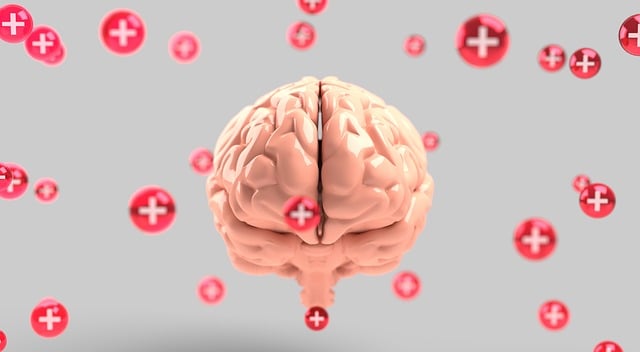Littleton Geriatrics Therapy emphasizes comprehensive risk management in mental health care, addressing unique client challenges through targeted interventions. Their approach includes identifying and mitigating risks like acute crises, caregiver stress, and stigma, while promoting therapist self-care and fostering communication skills. This multi-faceted strategy ensures high-quality geriatric care, empowering clients to navigate emotional complexities and achieve positive mental wellness outcomes.
In the dynamic field of mental health care, effective risk management is paramount to ensure patient safety. This article explores comprehensive strategies for risk planning tailored specifically for professionals at Littleton Geriatrics Therapy. We delve into understanding risk dynamics unique to geriatric therapy, identifying potential hazards, and developing robust plans. From implementing safety protocols to continuous monitoring, these practices are essential to foster a secure environment. By adopting these measures, Littleton Geriatrics Therapy can enhance patient outcomes and mitigate risks, setting a standard of excellence in mental health care.
- Understanding Risk in Mental Health Practice
- Identifying Potential Hazards at Littleton Geriatrics Therapy
- Developing a Comprehensive Risk Management Plan
- Implementing and Monitoring Strategies for Safe Practice
Understanding Risk in Mental Health Practice

In the realm of mental health services, understanding risk is paramount for professionals like those at Littleton Geriatrics Therapy. Each client presents with a unique set of challenges and vulnerabilities that can introduce various risks to their well-being. These risks encompass not just acute crises but also chronic stressors and potential setbacks in recovery journeys. By meticulously assessing these risks, therapists can tailor interventions to prevent adverse outcomes. This proactive approach is crucial for fostering mental wellness among clients, ensuring they receive the support needed to navigate complex emotional landscapes effectively.
The dynamic nature of mental health necessitates a robust risk management strategy that goes beyond mere crisis intervention. Incorporating elements from Mental Wellness Coaching Programs Development and Stress Management Workshops Organization can empower therapists and clients alike. These strategies enable professionals to proactively identify and mitigate risks, fostering an environment conducive to resilience and positive mental wellness outcomes. Such initiatives not only enhance the quality of care but also underscore the organization’s commitment to comprehensive patient support.
Identifying Potential Hazards at Littleton Geriatrics Therapy

At Littleton Geriatrics Therapy, identifying potential hazards is a comprehensive process that involves careful consideration of various factors unique to geriatric care. The therapy center recognizes that working with elderly individuals often presents distinct challenges. One key area of focus is preventing and managing caregiver stress and burnout. This includes recognizing the subtle signs of strain among therapists and support staff, as high caseloads and complex patient needs can lead to emotional exhaustion. Regular self-awareness exercises and conflict resolution techniques are integral to mitigating these risks, ensuring professionals maintain optimal well-being and quality of care.
Additionally, fostering a safe and supportive environment is crucial for both patients and staff. Littleton Geriatrics Therapy implements social skills training programs to address potential communication barriers and intergenerational conflicts. By promoting understanding and empathy, these initiatives aim to create a harmonious atmosphere where individuals from diverse backgrounds can thrive. Such proactive measures not only enhance patient outcomes but also contribute to the overall resilience of the therapy center in providing effective care for complex mental health needs within the geriatric population.
Developing a Comprehensive Risk Management Plan

In the realm of mental health care, where emotions run deep and challenges are varied, a robust Risk Management Plan (RMP) is not just beneficial; it’s essential for professionals at Littleton Geriatrics Therapy. Developing an all-encompassing RMP involves identifying potential risks, assessing their likelihood and impact, and implementing strategic mitigations. This proactive approach ensures that therapists and caregivers can navigate complex client dynamics, unexpected crises, or even interprofessional conflicts using Conflict Resolution Techniques.
The plan should be tailored to address specific issues prevalent in geriatric therapy, such as managing elderly clients’ diverse physical and cognitive needs while promoting Self-Care Practices for professionals. Moreover, integrating strategies for Public Awareness Campaigns Development can help reduce stigma and foster a more supportive environment, ultimately enhancing patient care and outcomes at Littleton Geriatrics Therapy.
Implementing and Monitoring Strategies for Safe Practice

Effective risk management planning for mental health professionals involves implementing and monitoring strategies that ensure safe practice. This includes establishing clear protocols for patient assessment, treatment planning, and ongoing monitoring to mitigate potential risks and adverse outcomes. At Littleton Geriatrics Therapy, we emphasize proactive measures such as regular staff training on evidence-based practices and continuous quality improvement initiatives. These efforts are crucial in fostering a culture of safety where professionals are equipped with the knowledge and skills to navigate complex patient scenarios effectively.
Monitoring strategies should be comprehensive, encompassing not only clinical outcomes but also the well-being of healthcare providers. Burnout prevention strategies for healthcare providers, such as incorporating self-awareness exercises and promoting work-life balance, are integral components of risk management. Additionally, public awareness campaigns development can play a significant role in educating both professionals and the public about mental health issues, fostering better understanding and support systems. Such initiatives contribute to creating an environment that not only supports safe practice but also encourages growth and resilience among mental health professionals.
Mental health professionals, such as those at Littleton Geriatrics Therapy, must prioritize risk management planning to ensure safe and effective practice. By understanding the risks inherent in their work, identifying potential hazards, and developing comprehensive strategies, therapists can create a protective environment for both clients and themselves. Implementing and monitoring these risk management plans are vital steps to maintain a high standard of care and foster a positive therapeutic outcome at Littleton Geriatrics Therapy and beyond.










